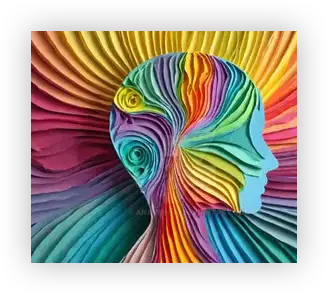Schizophrenia at Reliant Family Psychiatry in Grand Prairie, TX.
Reliant Family Psychiatry in Grand Prairie TX, where we prioritize your mental well-being and provide comprehensive care tailored to your unique needs.
Schizophrenia is a complex mental disorder that affects how a person thinks, feels, and behaves. Our dedicated team is committed to offering guidance, support, and the latest therapeutic approaches to ensure individuals with schizophrenia, and other mental health challenges, achieve a harmonious state of mind


Understanding Schizophrenia
Schizophrenia is a deep-seated and long-term mental health disorder that disrupts a person’s thinking, perceptions, emotional responses, and behavior. Those living with schizophrenia often experience the world in a unique way, which can include seeing things that aren’t there, holding onto beliefs without basis, and facing difficulties in ordinary thinking and actions.
It’s a condition that goes beyond any single symptom it’s a complex mixture of various elements influencing a person’s capacity to think, feel, and behave. Although schizophrenia can be quite challenging and affect everyday life significantly, with consistent care and appropriate treatments, many individuals manage their symptoms effectively. They can prevent severe complications and lead meaningful lives. It’s important to note that schizophrenia is not related to having a ‘split personality, a common misconception.
Schizophrenia Symptoms
Schizophrenia symptoms typically fall into several categories:
Positive Symptoms:
- Hallucinations: These often involve seeing or hearing things that aren’t real, yet feel entirely authentic to the person experiencing them. Hearing voices is the most common form.
- Delusions: These are strong beliefs not rooted in reality. They may include feelings of being harmed, believing that normal remarks have special meanings, thinking one possesses extraordinary talents or fame, feeling loved by someone unknown, or fearing an impending disaster. Most people with schizophrenia experience delusions.
- Disorganized Thinking (Speech): This is usually identified through disorganized speech. Communication may become challenging, with responses often unrelated or off-topic. Occasionally, speech might consist of a jumble of words or phrases, known as ‘word salad.
Cognitive Symptoms:
- Impaired Attention: Challenges in concentrating or following conversations.
- Poor Working Memory: Difficulty in using information shortly after learning it.
- Impaired Executive Function: Struggles with planning, decision-making, or organizing thoughts.
Negative Symptoms:
- General Withdrawal: This could manifest as poor hygiene, emotionless demeanor, lack of eye contact, unchanged facial expressions, or monotonous speech. A person might also show less interest in daily activities, withdraw socially, or struggle to feel pleasure.
- Affective Flattening: There’s a noticeable reduction in the expression of emotions, including in facial expressions, voice tone, and body language.
- Alogia: Speech might become less frequent or content-poor, complicating conversation.
- Anhedonia: This is a reduced capacity to enjoy normally pleasurable activities.
- Avolition: There’s a decline in motivation for completing tasks or activities.
Disorganized Symptoms:
- Erratic Behavior: This might include unpredictable agitation or silliness.
- Inappropriate Emotional Responses: Examples are laughing at sad news or crying for no clear reason.
- Challenges in Routine Activities: Difficulties with daily tasks like personal hygiene or cooking due to disorganized thought processes.
Symptoms in Teenagers
In teenagers, schizophrenia symptoms are akin to adults, but it can be harder to spot. This difficulty partly stems from typical teenage behaviors, like withdrawing from family, dropping grades, sleep issues, moodiness, or lack of motivation. Substance use in teens, like marijuana or methamphetamines, can also mimic schizophrenia symptoms.
Compared to adults, teens with schizophrenia might show:
- Fewer delusions.
- More visual hallucinations.
Causes and Risk Factors
While the exact cause of schizophrenia is unknown, researchers believe a combination of genetics, environment, and altered brain chemistry and structure play a role. Key points to consider include:
Genetic Factors
- Family History: The risk of schizophrenia increases if a close family member, like a parent or sibling, has the condition.
- Genetic Mutations: Specific genetic changes have been associated with a higher risk, although no single gene is responsible for schizophrenia on its own.
Brain Structure and Neurochemistry:
- Brain Abnormalities: Some studies suggest structural differences in certain brain regions or the connections between these areas in those with schizophrenia.
- Neurotransmitters: Imbalances or disruptions in neurotransmitters, especially dopamine and glutamate, have been linked to schizophrenia.
Environmental Factors:
- Prenatal Exposure: Exposure to viruses, malnutrition, or stress during pregnancy may increase the risk.
- Birth Complications: Lack of oxygen during birth or low birth weight might have a role.
- Drug Use: Consuming psychoactive drugs during teenage years and early adulthood can increase the risk.
Developmental Factors:
- Advanced Paternal Age: Older age of the father at the time of conception might be associated with an increased risk.
- Early Motor Developmental Issues: Some studies have pointed towards an association between disruptions in early motor development and later schizophrenia risk.

Treatment and Management
Navigating the challenges of schizophrenia demands a well-rounded strategy, unique to each individual’s journey. At Reliant Family Psychiatry, our ethos revolves around the paramount importance of early intervention and thorough treatment, ensuring an enhanced quality of life for those grappling with this condition.
Pharmaceutical Interventions:
- Primary Medications: Central to schizophrenia management are antipsychotic drugs. Available in oral forms or extended-release injections, notable options encompass risperidone, olanzapine, and clozapine.
- Additional Prescriptions: In cases with overlapping mood disturbances or depressive elements, mood stabilizers and antidepressants are often integrated with the primary medication.
Psychotherapy:
- Cognitive Behavioral Therapy (CBT): Cognitive Behavioral Therapy serves as a tool to aid patients in discerning and rectifying detrimental thought cycles and actions.
- Family Therapy: Family therapy is curated to foster healthier familial interactions and fortify the support network around the patient.
- Group Therapy: Group therapy sessions present an avenue for peers to exchange stories, coping mechanisms, and to cultivate a community of understanding.
Coordinated Specialty Care (CSC):
- A synergized regimen intertwining medication, therapeutic dialogues, case oversight, kin involvement, and backing in education and employment spheres. Emerging studies vouch for CSC’s potency, notably during the initial psychotic episodes.
Suicidal thoughts and behavior
Suicidal thoughts and behavior are common among people with schizophrenia. If you have a loved one who is in danger of attempting suicide or has made a suicide attempt, make sure someone stays with that person. Call 911 or your local emergency number immediately. Or, if you think you can do so safely, take the person to the nearest hospital emergency room.

Discover a brighter mental well-being journey at Reliant Family Psychiatry in Texas!
- We're here to guide you every step of the way. Choose Reliant Family Psychiatry today
